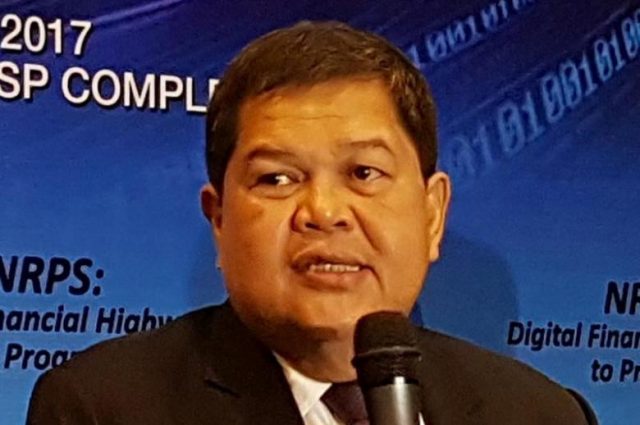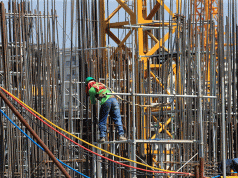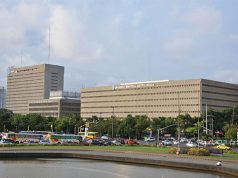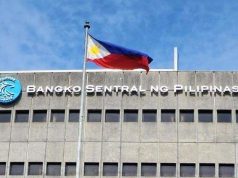MANILA – The Bangko Sentral ng Pilipinas (BSP) may raise interest rates should tax reform trigger price increases for all other consumer goods and services as well as wage hike petitions that, in turn, could push inflation beyond target.
“For the BSP, our concern there is the secondary impact on inflation. We’ve always understood that it would have an impact on inflation in the short run, but we don’t expect it to last,” BSP Governor Nestor A. Espenilla, Jr. said Tuesday at the Edsa Shangri-La Hotel.
“It will last if people begin to believe that inflation is going overboard… and we may need to react to that.”
Enacted as Republic Act No. 10963, the Tax Reform for Acceleration and Inclusion (TRAIN) reduces personal income tax rates and provided a simpler system for computing donor and estate taxes. Foregone revenues will be offset by the removal of some exemptions from value-added tax, alongside higher tax rates for fuel, cars, capital gains and new taxes for sugar-sweetened drinks, among others.
The BSP has said that it expects the new taxes to add “less than one percentage point” to overall inflation, hence, keeping overall price movements manageable.
Pressed further, Espenilla said TRAIN’s second-round impact which the central bank is looking out for would include increases in daily minimum wage, the cost of other products and services even if these are not directly hit by the additional excise taxes imposed starting this month.
“We are looking at the secondary effects and on the impact on expectations of people. When people try to ask for more wages because of taxes, that’s a secondary effect that we need to evaluate and analyze the impact,” Espenilla said in an interview.
“When people try to jack up prices everywhere in the system although they are not part of the direct hit of TRAIN… we have to evaluate that.”
Espenilla said the new tax law gives people a sense that the prices of all other commodities should be rising.
GENERALLY POSITIVE
Despite this, Espenilla sees the tax reform as “positive” for the Philippine economy as it would unlock more disposable incomes despite the pickup in the prices of consumer goods.
“The economy is expected to continue to grow strongly this year and consumption spending will remain strong,” he added.
Bank economists have been flagging the need for the central bank to raise rates in order to keep up with rising inflation and contain the build-up of risks in the financial system, as well as with rising global yields as the United States tightens its monetary policy further. Last year saw the Federal Reserve increase policy interest rates three times, and another three increases are expected in 2018.
Espenilla said Philippine monetary authorities will bare new inflation forecasts during their Feb. 8 policy meeting — their first this year — as they have incorporated TRAIN’s impact into their baseline forecasts.
The Monetary Board kept borrowing rates unchanged during its Dec. 14 review as it saw inflation settling within the 2-4% annual target until 2019. The BSP expects a 3.4% average inflation this year, coming from 3.2% in 2017.
“It will be an interesting policy meeting,” Espenilla said.
“That will give us a better handle as to whether we can continue our initial assessment that we don’t necessarily have to react to this because this is known as transitory and minimal.”
There appears to be a change in tack, following previous assertions by central bank officials that they have enough leeway to keep any tweak on policy interest rates on hold.
EXTERNAL RISKS
Espenilla also flagged potential risks from global developments that could take a toll on the Philippine economy.
Continuing uncertainty for the United States’ economy, potential instability in Europe amid the United Kingdom’s exit from the European Union, political tremors in the Middle East and tensions on the Korean peninsula could roil markets worldwide.
“We can get a curve ball from any of these issues,” Espenilla said, adding cybersecurity threats to potential market risks.
Still, the central bank chief said prospects remain “very good” for the Philippine economy this year amid indications that robust growth will continue with a fiscal deficit that’s under control and a strong banking system.
RESERVE STANDARDS
Espenilla said Philippine monetary authorities are carefully timing their plan to reduce the 20% reserve requirement ratio imposed on big banks, mindful that the financial system remains awash with cash despite some tightening in liquidity conditions in December.
“There’s the basic management of liquidity, and there’s also the desire to change the way we manage liquidity,” the central bank chief said.
“We want to substitute reserve requirements with open market instruments without necessarily increasing liquidity. The BSP is planning such a maneuver.”
Espenilla has said that he wants to see the reserve standard cut to single-digit levels to remove such “inefficiency” from the banking system, even as he said such an adjustment will be done gradually in order not to flood the market with cash and trigger imbalances in the economy.










